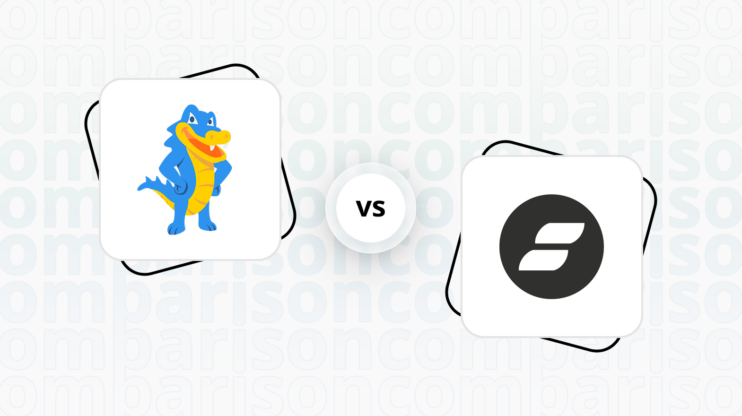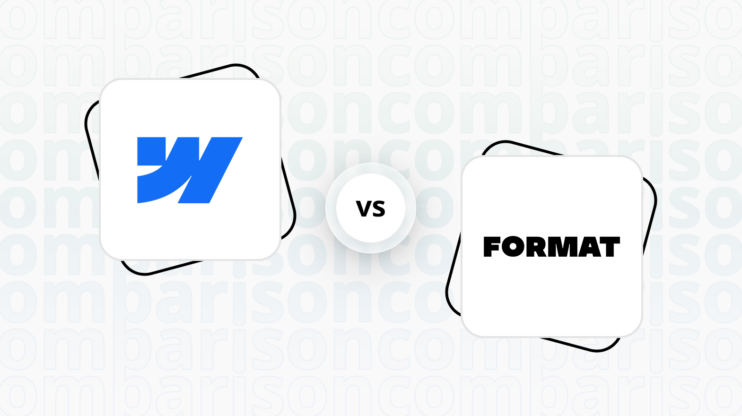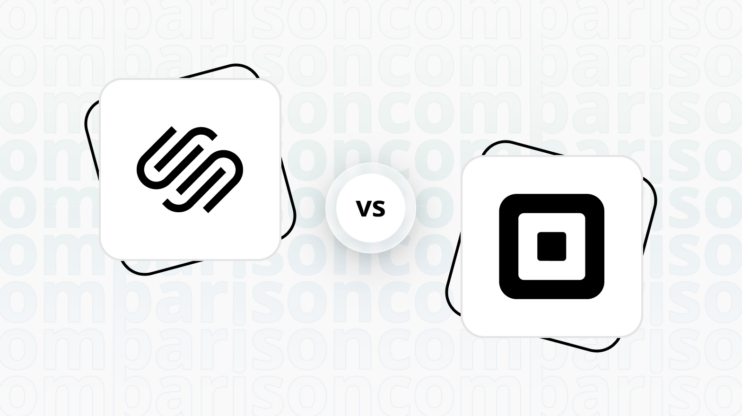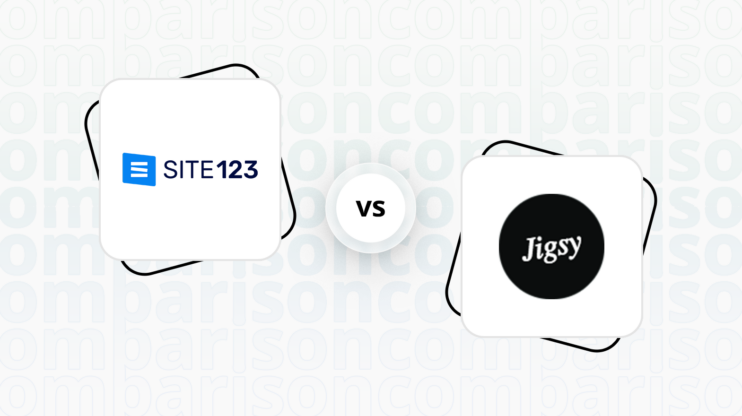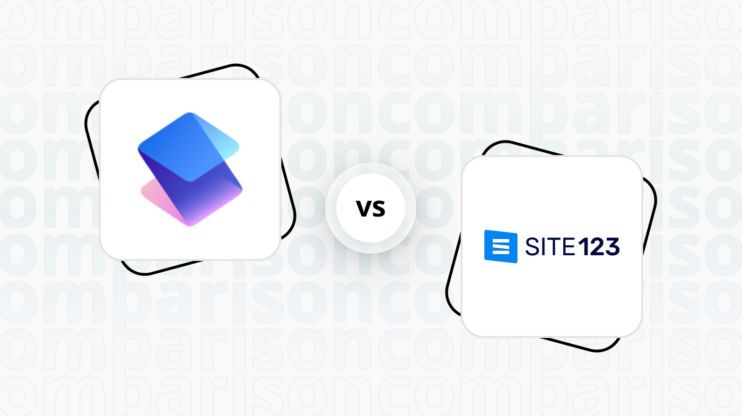Final verdict
BlueHost and Adobe Commerce(ex Magento) both offer robust platforms, but they cater to different user needs and expertise levels.
-
BlueHost (Overall Grade: 6.8/10)
is a versatile web hosting service with a user-friendly website builder that integrates seamlessly with WordPress. It is ideal for users looking for an easy-to-use platform with a wide range of templates and customization options. BlueHost excels in ease of use, making it accessible for beginners and those with little to no coding experience. However, its ecommerce capabilities are more limited compared to Adobe Commerce(ex Magento), and it may require additional plugins or customizations to meet specific ecommerce needs. -
Adobe Commerce(ex Magento) (Overall Grade: 6.9/10)
is a powerful ecommerce platform suitable for both B2B and B2C businesses. It offers extensive customization options, advanced ecommerce features, and robust security measures. Adobe Commerce(ex Magento) is ideal for larger businesses and those with more complex ecommerce needs. While it has a steeper learning curve and may be challenging for beginners, its scalability and integration with Adobe Experience Cloud make it a strong choice for businesses looking to grow and optimize their online presence.

|

|
|
|---|---|---|
|
Design functionalities & templates |
7.2 |
6.7 |
|
Ease of use |
8.2 |
5.4 |
|
Ecommerce |
6.8 |
9.4 |
|
Website Editors |
7.3 |
7.8 |
|
Product testing options |
6.2 |
3.9 |
|
Price |
7.2 |
5.8 |
|
Hosting quality |
8.0 |
8.1 |
|
Website speed optimization |
6.5 |
6.6 |
|
Plugins and integrations |
9.1 |
9.1 |
|
Marketing features |
7.3 |
8.1 |
|
Customer support |
7.6 |
8.3 |
|
Security |
8.3 |
8.4 |
|
AI capabilities |
1.5 |
7.7 |
|
User Management |
4.4 |
8.0 |
Best for ecommerce
 6.8
6.8
 9.4
9.4
Verdict
: BlueHost is suitable for small to medium-sized online stores, while Adobe Commerce(ex Magento) excels in providing comprehensive ecommerce solutions for larger, more complex businesses.
-
BlueHost
: BlueHost offers a user-friendly website builder integrated with WordPress, making it accessible for users with little to no coding experience. It provides essential ecommerce features like product listings, shopping carts, and secure payment gateways. However, it may require additional plugins or customizations to meet specific ecommerce needs, which could add complexity and cost. BlueHost is ideal for small to medium-sized online stores looking for a straightforward setup. -
Adobe Commerce(ex Magento)
: Adobe Commerce(ex Magento) is a robust ecommerce platform suitable for both B2B and B2C businesses. It offers extensive features for product and inventory management, order processing, customer management, and marketing. With its advanced customization options and support for multiple payment gateways, Adobe Commerce(ex Magento) is ideal for larger businesses with complex ecommerce needs. Its integration with Adobe Experience Cloud enhances customer insights, making it a powerful tool for scaling online businesses.
Best for informational & business websites
 7.5
7.5
 7.4
7.4
Verdict
: BlueHost slightly edges out Adobe Commerce (ex Magento) for informational and business websites due to its user-friendly interface and extensive template options.
-
BlueHost
: BlueHost is a versatile platform that integrates seamlessly with WordPress, offering over 300 pre-installed templates and a drag-and-drop interface. This makes it an excellent choice for users looking to create professional-looking informational websites with ease. Its wide range of hosting plans and user-friendly design tools cater to both beginners and advanced users, making it a strong contender in this category. -
Adobe Commerce (ex Magento)
: Adobe Commerce, while primarily an ecommerce platform, offers robust customization and scalability. Its Page Builder tool and extensive range of developer tools make it suitable for businesses that require a high level of customization and integration. However, its complexity can be a barrier for beginners, making it less ideal for simple informational websites. When comparing BlueHost vs Adobe Commerce (ex Magento), Adobe Commerce excels in flexibility and advanced functionalities but may be overkill for straightforward informational sites.
Detailed comparison
Design functionalities & templates
Design FunctionalitiesRepresents how well each platform allows for creative design and customization of websites.Score Components:
- Template Variety (30%): Range and quality of design templates.
- Customization (30%): Flexibility and options for design alterations.
- User Interface (20%): Ease and intuitiveness of the design process.
- Responsiveness (10%): Adaptability to different devices and screen sizes.
- Innovation (10%): Unique design features and tools.
 7.2
7.2
 6.7
6.7
Winner: BlueHost.
If you’re looking for a platform that offers a wide range of templates and designs, BlueHost is the preferred choice.
BlueHost’s WordPress website builder offers over 300 pre-installed templates and designs to cater to the diverse needs of its users, ensuring that there’s something for everyone, regardless of the niche or industry. With hundreds of customizable templates available, users can easily find a design that aligns with their vision and brand identity. These templates are designed to be responsive and SEO-friendly, enhancing the user experience and visibility of the websites. From simple blog layouts to complex ecommerce designs, BlueHost provides a comprehensive selection to help users create professional-looking websites with ease.
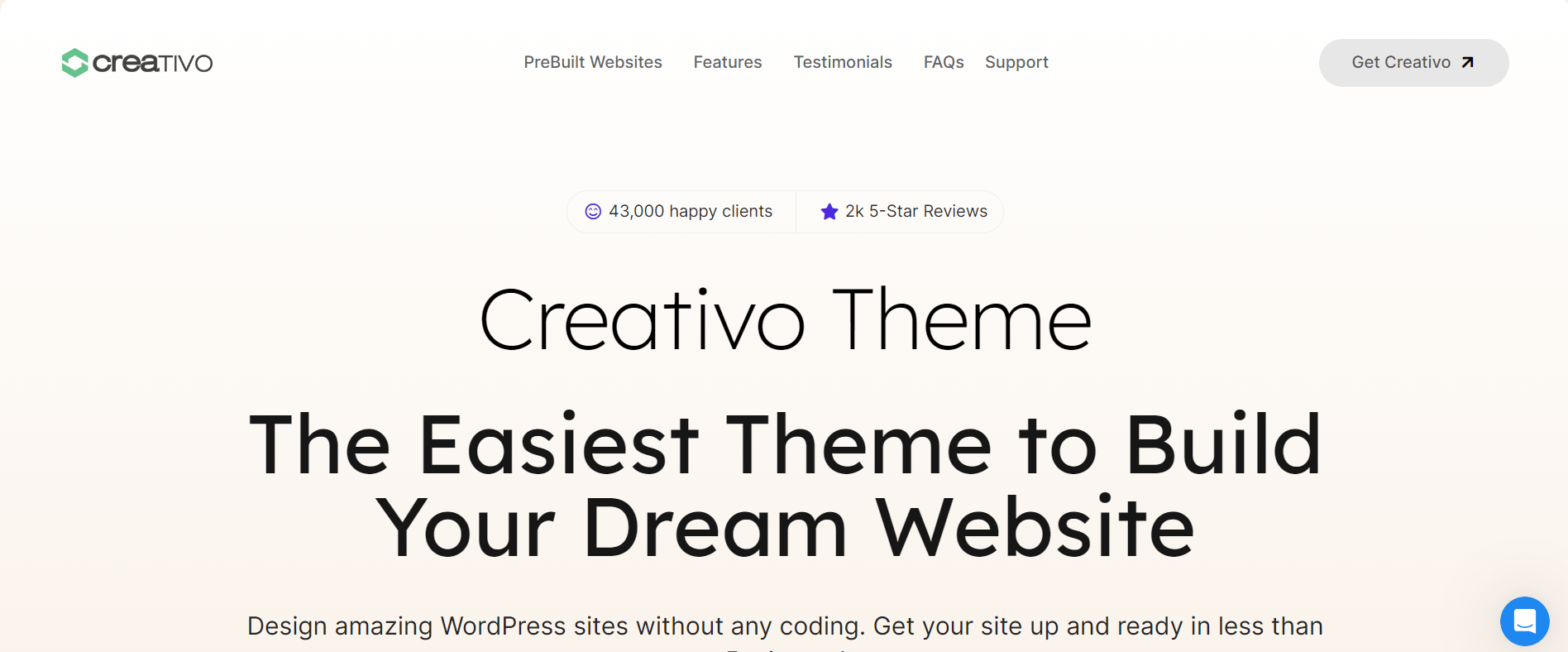
Compared to BlueHost, Adobe Commerce, formerly Magento, prioritizes flexibility over pre-built templates. While it offers a limited selection of base themes, users can access third-party themes for customization. Theme options are highly adaptable, allowing changes to layouts, colors, fonts, and the creation of custom page layouts. The platform provides a powerful theme framework for comprehensive control, including frontend editing for basic adjustments. Experienced developers can employ custom code (HTML, CSS, Javascript) for unique designs and advanced functionalities.
Adobe Commerce(ex Magento) Themes
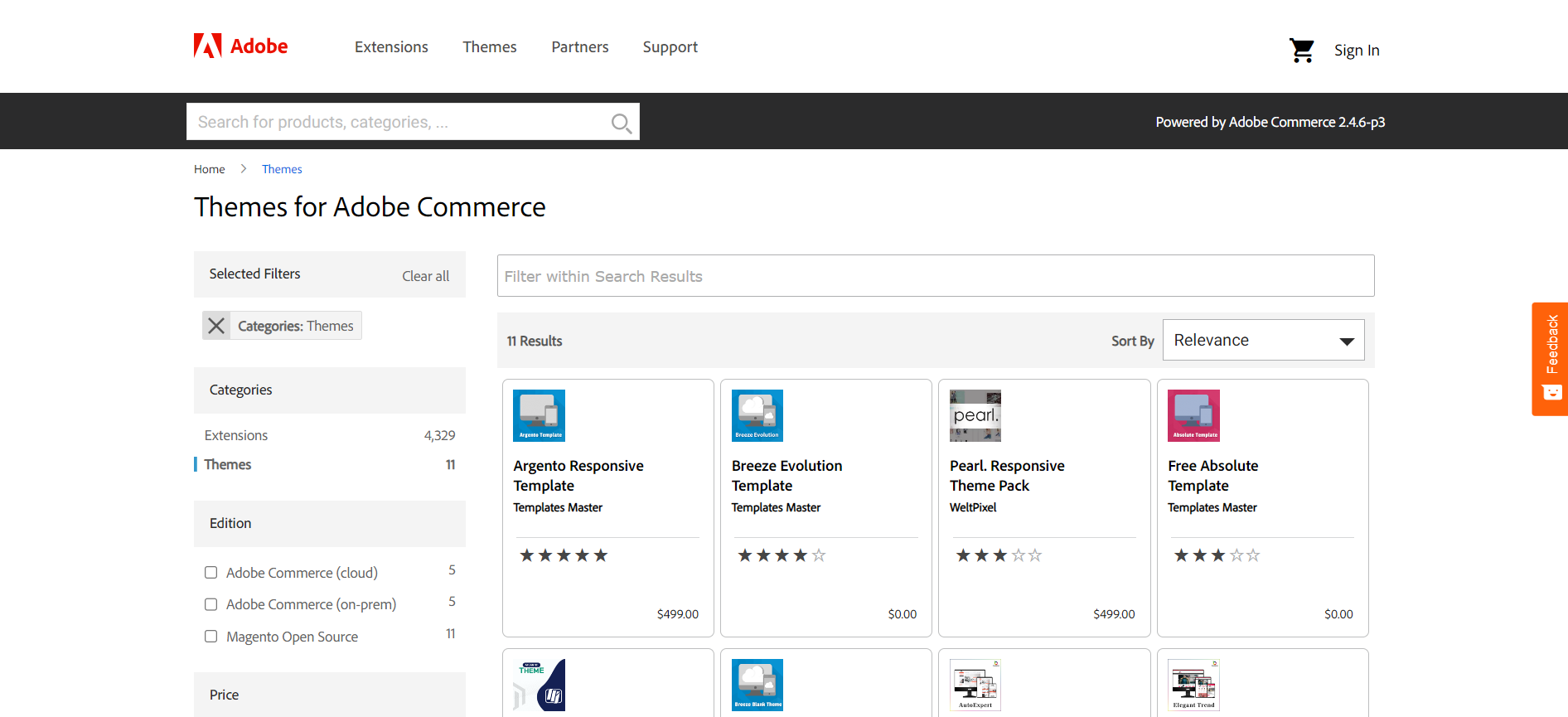
Get a head start on website creation with AI
Create a custom website tailored to your business needs 10X faster with 10Web AI Website Builder!
Ease of use
Ease of useReflects the platform’s overall user-friendliness.Score
Components:
- Learning curve (40%): Quickness and ease of getting started.
- Interface design (30%): Simplicity and intuitiveness of layout.
- User guidance (20%): Quality of tutorials and support.
- Flexibility (10%): Adaptability to various user skills.
 8.2
8.2
 5.4
5.4
🏆 Winner: BlueHost
. With a score of 8.2, BlueHost’s user-friendly interface and drag-and-drop design make it a more accessible option for users of all skill levels. Adobe Commerce(ex Magento), scoring 5.4, offers a highly customizable and scalable platform, but its complexity can pose challenges for beginners.
Learning Resources
🏆 Winner: Adobe Commerce(ex Magento)
. Both platforms offer comprehensive learning resources, but Adobe Commerce(ex Magento) provides a wider range of materials, including videos, tutorials, and instructor-led courses, catering to various user roles and proficiency levels.
For ecommerce
EcommerceMeasures the platform’s effectiveness in supporting online business activities.Score Components:
- Ecommerce themes and templates (20%): Variety and design of templates.
- Product management (25%): Ease of managing and organizing products.
- Payment options (25%): Variety and convenience of payment methods.
- Ecommerce features (20%): Features for managing an ecommerce store.
- Integration (10%): Compatibility with external e-commerce tools and services.
 6.8
6.8
 9.4
9.4
Adobe Commerce(ex Magento) is a robust ecommerce platform suitable for both B2B and B2C businesses. It offers a comprehensive set of features for online businesses, including product and inventory management, efficient order processing, customer account management, targeted marketing capabilities, diverse payment processing options, robust security measures, and scalability to accommodate business growth.
On the other hand, BlueHost, while offering a user-friendly website builder and a comprehensive web hosting service, has a more limited ecommerce offering. It integrates with WooCommerce for WordPress sites, allowing for the easy setup of product listings, shopping carts, and secure payment gateways. However, it may require additional plugins or customizations to meet specific ecommerce needs, which could add complexity and cost.

|

|
|
|---|---|---|
|
Ecommerce themes and templates |
6.5 |
7.5 |
|
Product page customization |
7.0 |
9.0 |
|
Payment processing and commissions |
6.8 |
7.8 |
|
POS capabilities |
0.0 |
7.0 |
|
Payment gateways |
7.5 |
8.5 |
|
Product numbers |
6.0 |
7.5 |
|
Additional ecommerce features |
6.5 |
8.0 |
BlueHost ecommerce features:
- Product Listings
- Shopping Carts
- Secure Payment gateways
- Shipping Options and Tax Calculations
- Inventory Management
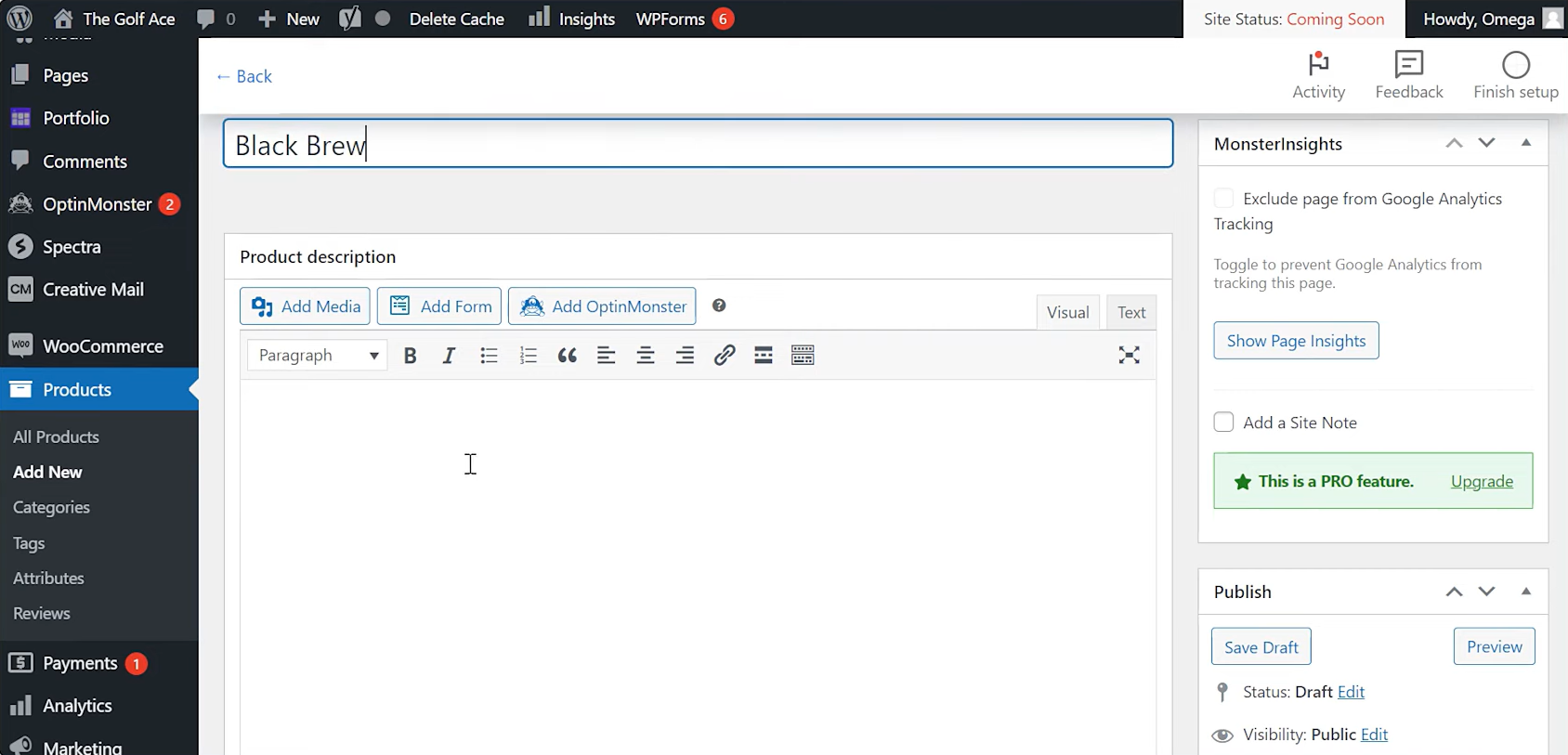
Adobe Commerce(ex Magento) ecommerce features:
- Product and Inventory Management
- Order Management
- Customer Management
- Marketing and Promotions
- Payment Processing
- Multi-Channel Commerce
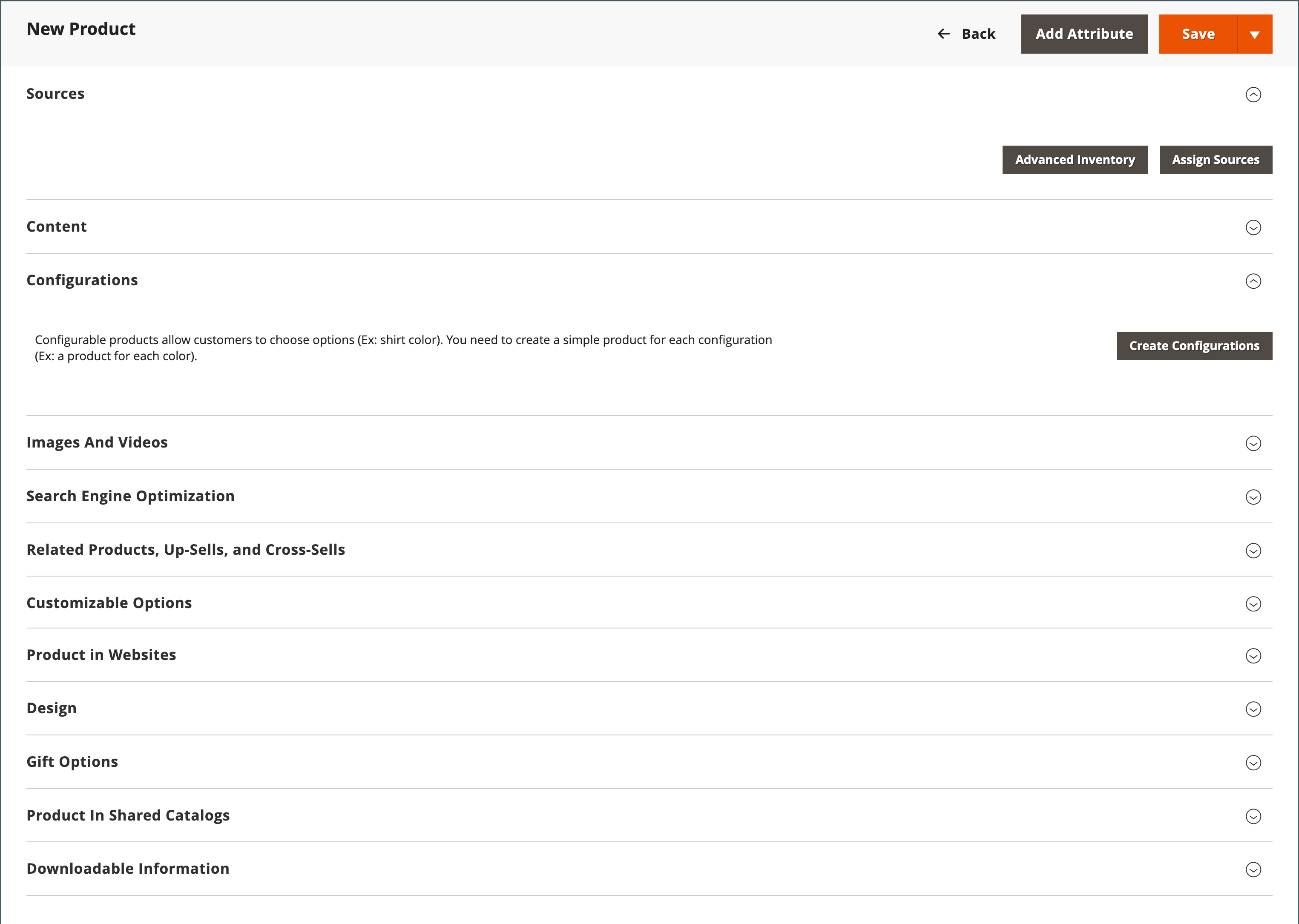
Ecommerce themes & templates
BlueHost’s website builder for eCommerce provides a selection of specific templates designed to streamline the creation of online stores. These templates are optimized for sales, featuring designs that accommodate product galleries, shopping carts, and checkout processes. However, the customization options might be limited compared to more specialized eCommerce platforms.
In contrast, Adobe Commerce, powered by Magento, offers a comprehensive ecosystem for ecommerce themes and templates, enabling businesses to customize their online stores to meet specific branding and functionality requirements. Themes in Adobe Commerce serve as the visual and structural framework for online stores, incorporating layout files, template files, translation files, and skins to define the look and feel.
Product page customization
BlueHost’s website builder offers robust customization features for product pages, allowing users to tailor product details like titles, descriptions, images, and pricing according to their preferences. It supports the creation of product variants and options, facilitating the sale of items with multiple choices such as size, color, and material directly from the product page.
Adobe Commerce, on the other hand, offers extensive customization options for product pages, enabling businesses to enhance the user experience and tailor product displays to their specific needs. This includes customizing layouts, product attributes, images and media, dynamic content like related products and reviews, and custom product options such as configurable and bundled products.
Payment processing
When it comes to payment processing, BlueHost doesn’t directly support numerous payment gateways. However, it does integrate with WooCommerce, a platform that facilitates integration with various payment gateways like PayPal and Stripe. While BlueHost doesn’t impose transaction fees, the payment gateways might. Furthermore, it lacks Point of Sale (POS) capabilities.
Adobe Commerce offers integrated payment solutions and commission management for seamless online transactions, alongside POS integration for omnichannel retail experiences. It supports a wide array of payment gateways, ensuring flexible and secure payment options for customers. These features make Adobe Commerce a versatile platform for businesses aiming to provide a comprehensive and secure shopping experience both online and in physical stores.
Website Editors
Website EditorsEvaluates the platforms’ website building and editing capabilities.Score Components:
- Customization tools (40%): Range and power of editing features.
- Editor usability (30%): User experience within the editor.
- Design flexibility (20%): Freedom in layout and design changes.
- Update and maintenance ease (10%): Simplicity of updating and maintaining the site.
 7.3
7.3
 7.8
7.8
🏆
Winner: Adobe Commerce(ex Magento)
. Adobe Commerce(ex Magento), with a score of 7.8, offers a user-friendly website editor with its Page Builder tool, designed for ease of use through drag-and-drop capabilities, allowing for simple management and customization of eCommerce sites without extensive developer involvement. It provides a flexible and intuitive platform for users to effortlessly design, update, and maintain their online stores, supported by a variety of design options and themes for tailored branding and promotional activities.
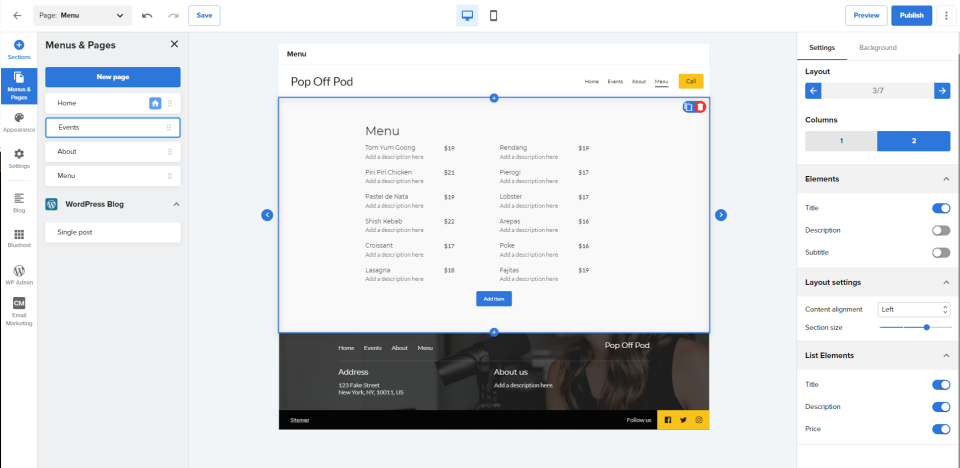
BlueHost’s website builder editor, scoring 7.3, is designed for ease of use, catering to both beginners and advanced users. It offers a section based drag-and-drop interface, allowing users to easily add, remove, and customize elements on their website without needing to code. Users can choose from a wide range of templates and customize them to fit their brand, including adjusting layouts, colors, and fonts. Additionally, the editor provides access to stock photos, SEO tools, and responsive design features, ensuring websites look great on all devices and can rank well on search engines.
Mobile editor/app
 5.0
5.0
 0
0
🏆
Winner: BlueHost
. Neither BlueHost nor Adobe Commerce(ex Magento) offer a dedicated mobile app for website editing. However, BlueHost does allow users to edit their website on a mobile browser, albeit with some limitations. This gives BlueHost a slight edge over Adobe Commerce(ex Magento), which does not provide any mobile editing capabilities at this time.
Product testing options
Product Testing OptionsAssesses the options for trying out platform features before commitment.Score Components:
- Trial quality (40%): Extent and usefulness of the trial or free version.
- Feature accessibility (30%): How many features are available to test.
- Trial duration (20%): Length of the trial period.
- Ease of transition (10%): Smoothness of moving from trial to paid plans.
 6.2
6.2
 3.9
3.9
Overall Result
:
BlueHost Wins
. BlueHost scores 6.2, while Adobe Commerce(ex Magento) scores 3.9 in product testing options. BlueHost does not offer a free or trial version, but it allows users to test premium features within a 30-day refundable period. On the other hand, Adobe Commerce(ex Magento) does not provide a free or trial version either, but it allows users to test premium features by requesting a demo version for a trial period. However, Adobe Commerce(ex Magento) does not offer a money-back guarantee.

|

|
|
|---|---|---|
|
Free Plan |
No | No |
|
Trial Duration |
No | No |
|
Testing Premium Features |
Within 30-day refundable period |
By requesting a demo version |
|
Money Back Guarantee |
30-day money back guarantee |
No |
Price
PriceLooks at the cost-effectiveness and value for money of each platform.Score Components:
- Plan value (40%): What each pricing tier offers.
- Transparency and clarity (30%): Clearness of pricing structures.
- Flexibility of plans (20%): Range of options to suit different budgets.
- Hidden costs (10%): Additional expenses not included in the plan.
 7.2
7.2
 5.8
5.8
BlueHost offers a range of pricing options for different needs, while Adobe Commerce (ex Magento) is more suited for larger businesses with its premium pricing strategy.

|

|
|
|---|---|---|
|
$10-$20 |
Basic ($15.99/month): Made for a simple website or blog, 1 website with 10GB SSD storage, Free CDN, Free Domain 1st year, Managed WordPress Hosting, Free SSL 1st year and Chat Support. Value for price: 6.5 |
No offering at this amount. |
|
$20-$30 |
Choice Plus ($27.99/month): Ideal for multiple sites needing storage, security, backups, 3 websites with 40GB SSD storage, Free CDN, Free Domain 1st year, Managed WordPress hosting, Free SSL, Free Domain privacy 1st year, Malware scanning, daily site backups are free for the 1st year with the purchase of a 12 or 36-month package. Otherwise, users are required to pay a one-time fee of $35.88 for backup services. Value for price: 7.5 |
No offering at this amount. |
|
$30-$35 |
Online Store ($32.99/month): Great for all online selling, built-in eCommerce tools, 3 websites with 40GB SSD storage, Free CDN, Free Domain 1st year, Managed WordPress hosting, Free Domain privacy 1st year, Malware Scanning, Exclusive Theme Store, Store Analytics, Unlimited products, Secure Payment options, Bookings & appointments, Shipping labels, product search and filtering, daily site backups are free for the 1st year with the purchase of a 12 or 36-month package. Otherwise, users are required to pay a one-time fee of $35.88 for backup services. Value for price: 8.5 |
No offering at this amount. |
|
$35-$40 |
Pro ($39.95/month): Perfect for high traffic, advanced storage, security, 5 websites with 100GB SSD storage, Free CDN, Free Domain 1st year, Managed WordPress hosting, Free SSL, Free Domain privacy 1st year, Malware Scanning, daily site backups are free for the 1st year with the purchase of a 12 or 36-month package. Otherwise, users are required to pay a one-time fee of $35.88 for backup services. Value for price: 9.0 |
No offering at this amount. |
|
$2000+ |
No offering at this amount. |
Adobe Commerce Pro and Managed Services ($2000/month): Adobe Commerce Pro and Managed Services are designed to deliver scalable, secure, and extensive eCommerce solutions tailored to a wide range of business demands. It offers a comprehensive set of ecommerce tools, including product and inventory management, efficient order processing, customer account management, targeted marketing capabilities, diverse payment processing options, robust security measures, and scalability to accommodate business growth. It also offers both self-hosted and cloud-hosted options, providing flexibility and optimized performance. While it does not have an AI website builder, it offers a powerful theme framework for comprehensive control, including frontend editing for basic adjustments. Experienced developers can employ custom code for unique designs and advanced functionalities. |
location. As a result in rare cases the prices displayed here can differ from the ones you see on their
websites.
Hosting quality
Hosting
qualityExamines the reliability and performance of the hosting solutions.Score Components:
- Uptime (40%): Consistency and reliability of website availability.
- Speed (30%): Loading times and performance.
- Bandwidth and storage (20%): Sufficiency of resources provided.
- Data centers (10%): Quality and distribution of hosting infrastructure.
 8.0
8.0
 8.1
8.1
Winner: Adobe Commerce(ex Magento)
Adobe Commerce offers both self-hosted and cloud-hosted options, providing flexibility and optimized performance. BlueHost, on the other hand, offers a range of hosting options designed to support websites at various stages of growth. However, Adobe Commerce edges out with its robust and scalable eCommerce solutions.

|

|
|
|---|---|---|
|
Do they offer hosting? |
Yes, offers a range of hosting options | Yes, offers robust and scalable eCommerce solutions |
|
Data Centers: |
6 data centers: Orem and Provo, Shanghai, Mumbai and Hong Kong, London | Adobe Commerce on Cloud infrastructure Leverages Amazon Web Services (AWS), Specific data center details not publicly available |
|
Type of hosting: |
Managed WordPress Hosting | Self Hosting, Managed Hosting |
|
Uptime: |
99.9% | Uptime Guarantee for Adobe Managed hosting is provided |
|
Uptime Guarantee: |
Yes, 99.9% | Yes |
Website Speed Optimization
Website Speed OptimizationEvaluates optimization of website loading timesScore Components:
- PageSpeed Score (30%): Google’s score indicating performance optimization.
- Loading Time (30%): The average time until a website is fully interactive.
- Mobile Optimization (15%): Optimization effectiveness for mobile devices.
- Resource Optimization (15%): Optimizing images, scripts, and other heavy resources.
- CDN Usage (10%): Use of CDN to enhance speed across geolocations.
 6.5
6.5
 6.6
6.6
🏆 Winner: Adobe Commerce(ex Magento)
Both BlueHost and Adobe Commerce(ex Magento) prioritize website performance and page speed, with Adobe Commerce(ex Magento) slightly edging out BlueHost in terms of website speed optimization.

|

|
|
|---|---|---|
|
Focus |
CDN, Server Optimization |
CDN, Database optimization, Caching, Indexing |
|
Performance Tools |
Google Lighthouse, PageSpeed Insights |
Google PageSpeed Insights Integration |
|
Key Strategies |
CDN, Server Optimization |
CDN, Database optimization, Caching, Indexing |
|
Load Times |
Varies widely, depending on the optimization, website complexity |
Varies widely, dependent on optimization |
|
Page Speed Scores Range |
Scores vary; influenced by website complexity |
Scores vary; influenced by plugins, images |
|
Core Web Vitals Improvement |
Emphasis on LCP, FID, CLS improvements |
Emphasis on LCP, FID, CLS improvements |
Adobe Commerce(ex Magento) has a slight edge over BlueHost when it comes to website speed optimization. Adobe Commerce(ex Magento) focuses on CDN, database optimization, caching, and indexing to improve website speed. The load times and PageSpeed scores vary widely, depending on the optimization and the influence of plugins and images. Adobe Commerce(ex Magento) also emphasizes on improving the Core Web Vitals, specifically LCP, FID, and CLS.
On the other hand, BlueHost also prioritizes website performance and page speed. It focuses on CDN and server optimization to improve website speed. The load times and PageSpeed scores vary widely, depending on the optimization and the complexity of the website. Like Adobe Commerce(ex Magento), BlueHost also emphasizes on improving the Core Web Vitals, specifically LCP, FID, and CLS.
Get a head start on website creation with AI
Create a custom website tailored to your business needs 10X faster with 10Web AI Website Builder!
Plugins and integrations
Plugins and integrationsMeasures the range and effectiveness of additional plugins and integrations.Score Components:
- Variety of options (40%): Range of available add-ons.
- Integration smoothness (30%): Ease of integrating plugins into the site.
- Quality of plugins (20%): Functionality and reliability of the options.
- Custom integration capabilities (10%): Support for custom or third-party integrations.
 9.1
9.1
 9.1
9.1
🏆 Winner: It’s a tie.
Both BlueHost and Adobe Commerce (ex Magento) score 9.1 in plugins and integrations. BlueHost, with its seamless integration with WordPress, offers thousands of plugins and extensions, ranging from SEO tools, security enhancements, e-commerce solutions, to social media integrations. On the other hand, Adobe Commerce provides a vast array of extensions and plugins, estimated to be in the tens of thousands, covering aspects such as marketing, payment processing, shipping, content management, security, and optimization. The choice between the two would depend on the specific needs and preferences of the user.
Adobe Commerce(ex Magento) Applications
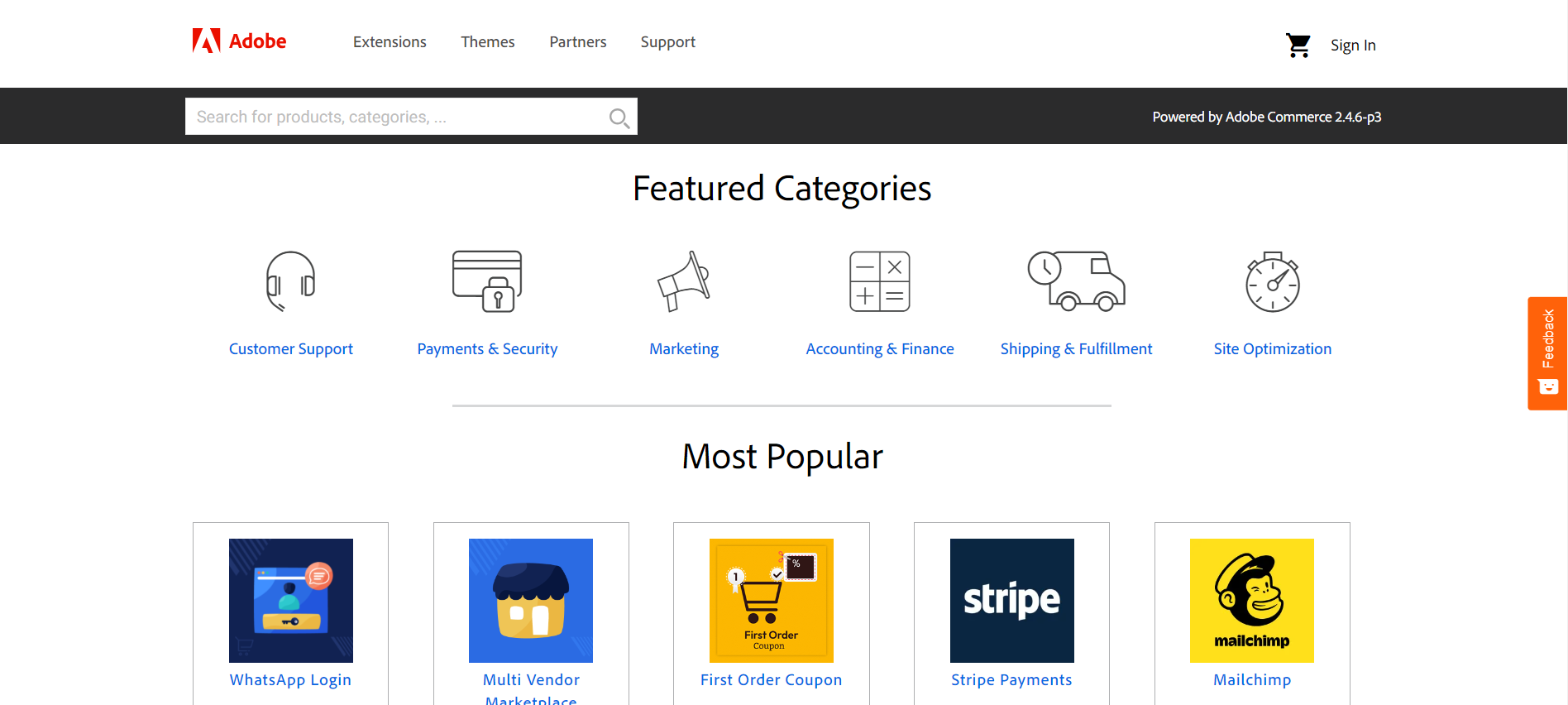
Marketing Features
Design FunctionalitiesRepresents how well each platform allows for creative design and customization of websites.Score Components:
- Template Variety (30%): Range and quality of design templates.
- Customization (30%): Flexibility and options for design alterations.
- User Interface (20%): Ease and intuitiveness of the design process.
- Responsiveness (10%): Adaptability to different devices and screen sizes.
- Innovation (10%): Unique design features and tools.
 7.3
7.3
 8.1
8.1
🏆
Overall Winner: Adobe Commerce(ex Magento)
. Adobe Commerce(ex Magento) stands out for its advanced marketing tools, especially in analytics, ad campaign management, and email marketing. BlueHost, while offering a solid range of features, is more reliant on third-party integrations for its marketing capabilities.

|

|
|
|---|---|---|
|
SEO Tools |
|
|
|
Email Marketing |
|
|
|
Blogging |
|
|
|
Social Media Integration |
|
|
|
Analytics and Reporting |
Integration of Google Analytics and other WordPress plugins |
Detailed insights into your ecommerce activities |
|
Ads and Promotions |
Yes, with third-party integrations |
Advanced marketing tools for creating and managing promotions, coupons, and personalized content |
Customer Support
Customer supportEvaluates the quality and availability of support options.Score Components:
- Response time (40%): Speed of support responses.
- Support quality (30%): Effectiveness and helpfulness of the support.
- Availability (20%): Range of support channels (phone, chat, email).
- Resource richness (10%): Quality of self-help and educational materials.
 7.6
7.6
 8.3
8.3
🏆 Winner: Adobe Commerce(ex Magento)
. In the comparison of BlueHost vs Adobe Commerce(ex Magento), Adobe Commerce(ex Magento) takes the lead with a higher customer support score of 8.3. Adobe Commerce offers 24/7 support through phone, email, and live chat, along with a comprehensive knowledge base and community forums. Their enterprise-level support includes dedicated account management and access to a global network of experts, ensuring businesses receive the assistance they need to optimize their ecommerce operations.
BlueHost, with a customer support score of 7.6, provides 24/7 chat and phone support for general inquiries, and technical assistance is available from 7 a.m. to midnight EST. While BlueHost offers a variety of support options, it lacks the enterprise-level support that Adobe Commerce provides, making Adobe Commerce the better choice for businesses seeking robust and comprehensive customer support.
Security
SecurityLooks at the platforms’ security measures and data protection.Score Components:
- Data protection (40%): Safeguards for user and customer data.
- SSL and encryption (30%): Implementation of secure connections.
- Compliance (20%): Adherence to industry security standards.
- Regular updates (10%): Frequency of security updates and patches.
 8.3
8.3
 8.4
8.4
🏆
Winner: Adobe Commerce(ex Magento)
. Adobe Commerce(ex Magento) takes a slight lead with a security score of 8.4, compared to BlueHost’s 8.3. Adobe Commerce(ex Magento) provides secure private data storage and protection through advanced encryption and access control measures. It also offers regular security updates and patches, secure payment processing, and tools for monitoring and detecting suspicious activity on the website.
BlueHost also prioritizes data protection and website security. It offers SSL certificates, regular backups, and additional security features like SiteLock for malware scanning. BlueHost also provides automated backups, secure configuration options, and plugins, especially for WordPress hosting, to bolster website defenses. It implements 24/7 monitoring to promptly detect and respond to security threats, along with malware scanning and removal processes.
AI Capabilities
AI capabilitiesMeasures the effectiveness of AI-driven features and tools.Score Components:
- Automation efficiency (40%): Impact of AI on streamlining processes.
- Personalization (30%): AI-driven customization for users or customers.
- AI-Assisted design (20%): Role of AI in website design and functionality.
- Data analysis (10%): Use of AI in interpreting user data and analytics.
 1.5
1.5
 7.7
7.7

|

|
|
|---|---|---|
|
Personalized Design |
|
|
|
SEO Optimization |
|
AI-driven SEO optimization for content |
|
Customer Behavior Analysis |
|
AI-powered customer behavior analysis |
|
Sales Predictions |
|
AI-driven inventory management and price optimization |
|
Inventory Management |
|
AI-powered inventory management |
|
Content Generation |
|
AI assistance in creating and optimizing site content |
🏆 Winner: Adobe Commerce (ex Magento)
. Adobe Commerce (ex Magento) offers a range of AI capabilities that enhance the eCommerce experience. These include personalized product recommendations, visual search capabilities, inventory management, price optimization, content creation and optimization, customer service, security, and marketing. On the other hand, BlueHost does not have any AI capabilities, which is reflected in its low AI capabilities score of 1.5.
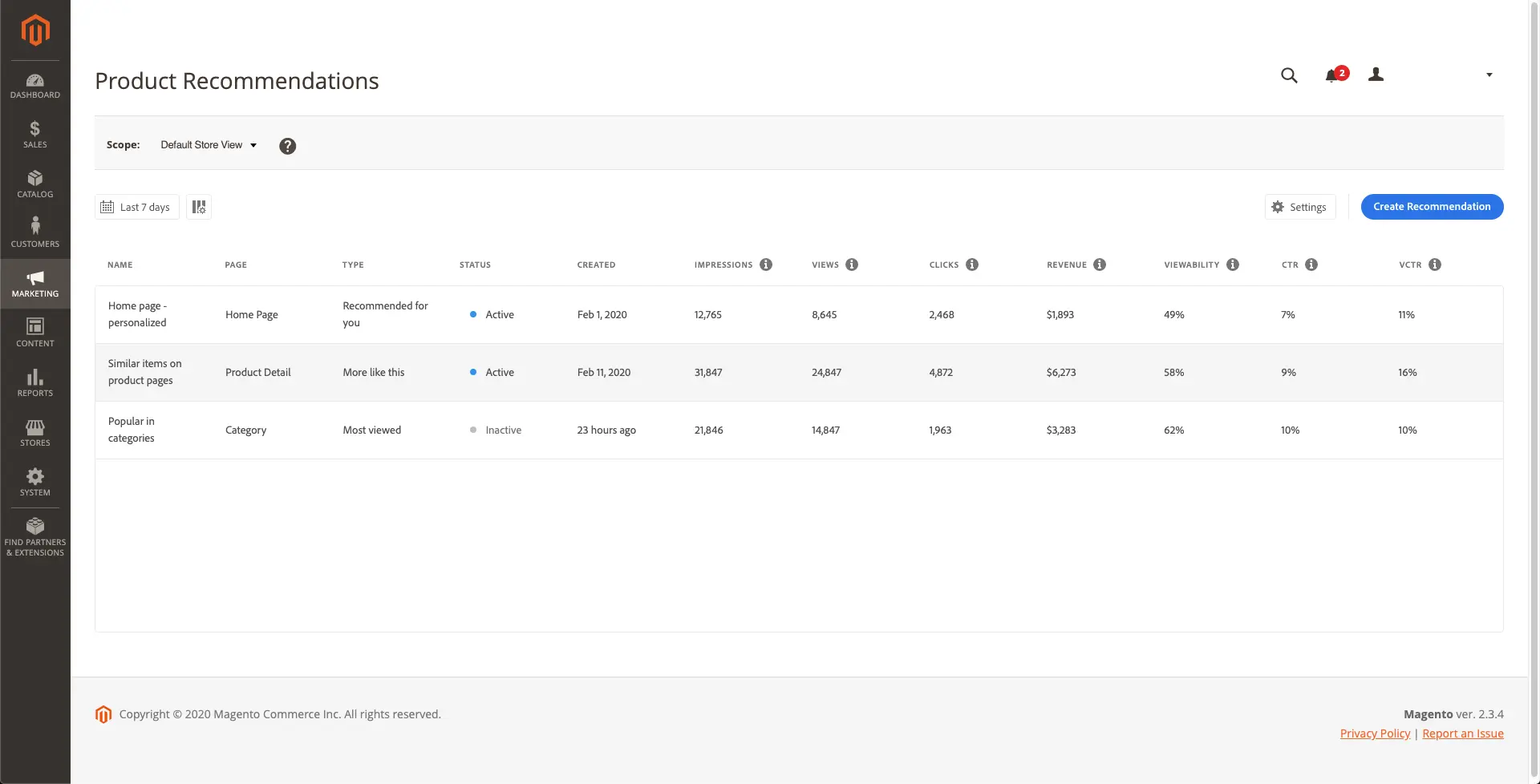
User Management
User ManagementAssesses the platforms’ capabilities in managing user roles, permissions, and accessibility.Score Components:
- Role Customization (40%): Flexibility in creating and defining user roles and
permissions. - Ease of Management (30%): User interface and tools for managing users.
- Access Control (20%): Effectiveness of access control measures for different user
levels. - Scalability (10%): Ability to manage a growing number of users efficiently.
 4.4
4.4
 8.0
8.0
🏆 Winner: Adobe Commerce(ex Magento)
. Adobe Commerce (ex Magento) offers a more robust user management system compared to BlueHost.
- BlueHost does support multi-user management, however, there’s no mention about the number of users or their roles and permissions.
- The number of users who can edit an Adobe Commerce website depends on user licenses and roles. User licenses, bought separately, determine the total number of users allowed, with additional licenses purchasable as needed. Roles and permissions, managed within the available licenses, control access and modifications, ensuring data security and efficient workflow.
Adobe Commerce(ex Magento) User Roles and Access Levels:
| Role | Description | Access Highlights |
|---|---|---|
| Administrator | Has full permissions to all aspects of Adobe Commerce, including global settings and data. | Full access to all settings, data, and functionalities within Adobe Commerce. Can manage other users’ roles and permissions. |
| Store Administrator | Responsible for the day-to-day management of the store, including products, orders, and customer service. | Access to manage products, process orders, and handle customer inquiries, but may have restricted access to sensitive global settings or data. |
| Design Team Member | Focuses on the aesthetic and user experience aspects of the store, working on content design and layout. | Access to content design tools and functionalities, but restricted from accessing customer, order information, and other sensitive areas. |
| Default User (B2B) | Has view-only access to company profile and credit information, and full access to activities related to sales and quotes. | Full access to sales and quotes activities; view-only for company profile and credit information. |
| Senior Buyer (B2B) | Engaged in purchasing, with access to all Sales and Quotes resources, and view-only permissions to the Company Profile, User and Teams, Payment Information, and Company Credit. | Comprehensive access to Sales and Quotes, with limited viewing rights for company’s financial and profile data. |
| Assistant Buyer (B2B) | Assists in purchasing activities, with permissions to place orders using Checkout with Quote, and to view orders, quotes, and company profile information. | Permission to execute orders and access relevant purchasing data; view-only access to company profile information. |
Additional Features

|

|
|
|---|---|---|
|
SSL Certificate |
|
|
|
Custom Domain |
|
|
|
Free Custom Domain Included |
|
|
|
International Domains |
|
|
|
Mobile Responsive |
|
|
|
Page Speed |
|
|
|
Website Builder Mobile App |
|
|
|
Convert a Website To An App |
|
|
|
Website Analytics |
|
|
|
Multilingual Sites |
|
|
|
Multiple Users |
|
|
User Feedback
Users appreciate BlueHost for its comprehensive free offerings, including SSL, subdomains, and custom email, along with additional services like free domain registration and CDN. The platform’s intuitive interface and user-friendly website builder cater to both beginners and experienced developers. However, concerns arise regarding the significant price increase upon renewal, limited free website templates, and unresolved technical issues with poor customer support, hindering users’ ability to effectively manage their websites and businesses. Addressing these concerns could enhance overall user satisfaction with BlueHost.
Adobe Commerce (formerly Magento Commerce) receives high praise for its comprehensive ecommerce solutions, offering features like customer and order management, scalability, and customization options. Users appreciate its flexibility and ease of use, although some mention a learning curve due to its extensive features. Despite occasional drawbacks like slow speed or complexity, Adobe Commerce proves beneficial for businesses seeking robust ecommerce platforms, aiding in sales growth, customer management, and overall efficiency in managing online stores.
The making of this blog
We followed a clear, step-by-step process to write and research this article.
FAQ
Which platform is better for ecommerce, BlueHost or Adobe Commerce (ex Magento)?
Can I use BlueHost for a simple informational or business website?
How do BlueHost and Adobe Commerce (ex Magento) compare in terms of ease of use?
What are the main differences in pricing between BlueHost and Adobe Commerce (ex Magento)?
Which platform offers better customer support, BlueHost or Adobe Commerce (ex Magento)?
Are there any AI capabilities available in BlueHost or Adobe Commerce (ex Magento)?
Which platform is recommended for users needing advanced marketing features?










